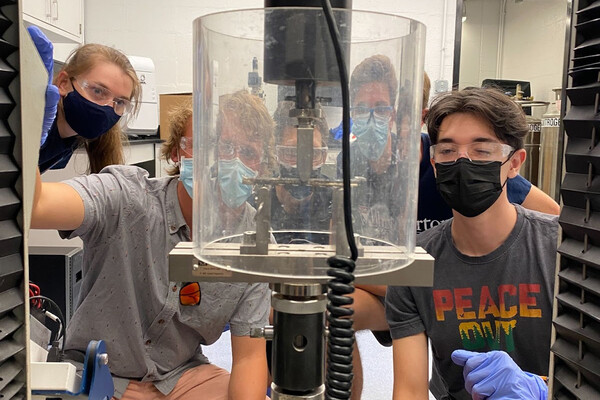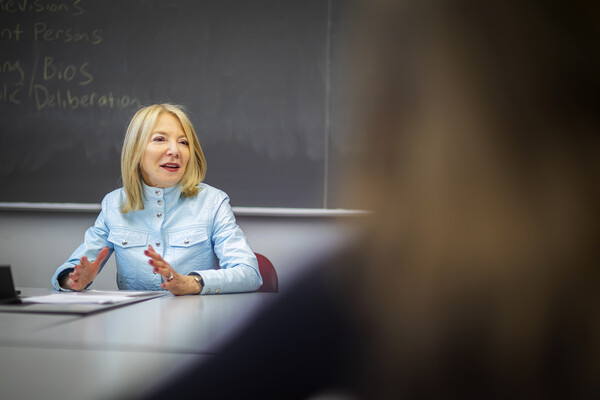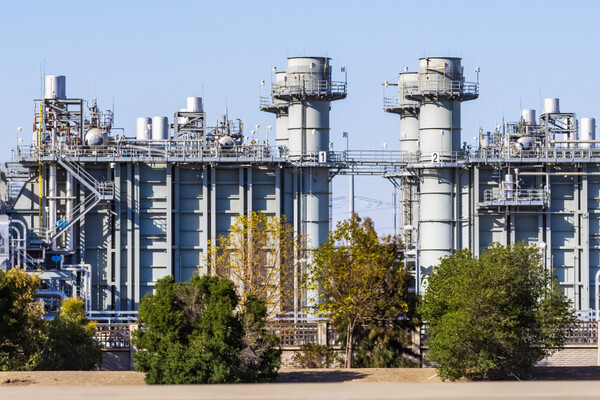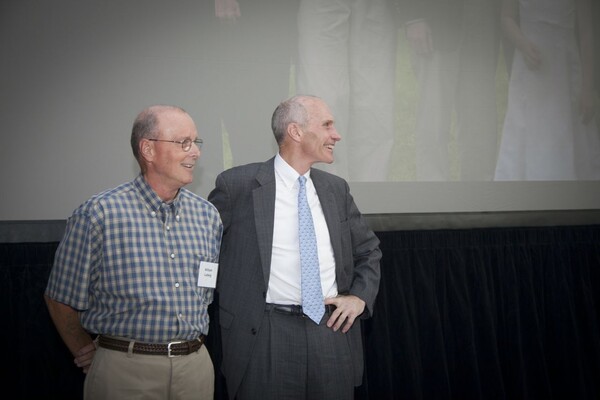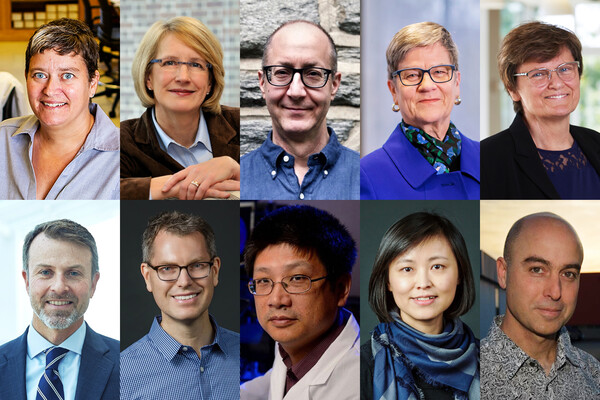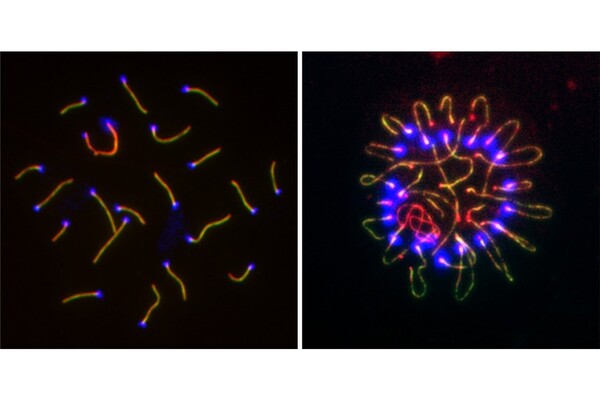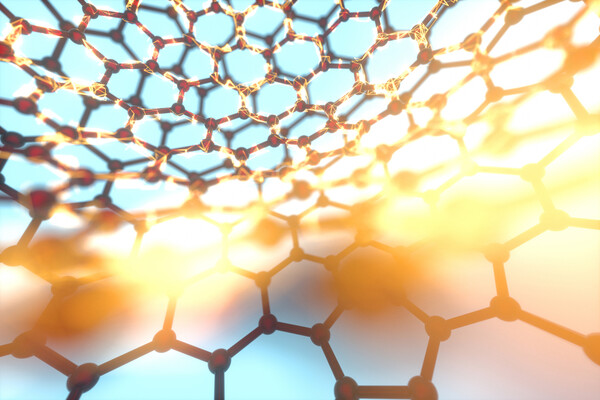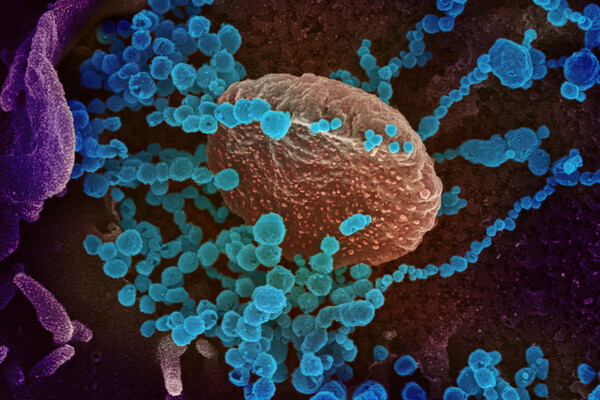MatSci Makerspace is a space for students to work with the synthesis, processing, structure, properties and application of materials, with open hours for materials-centric passion projects.
Latest News
Context-dependent behavior can make cooperation flourish
Recent studies led by School of Arts & Sciences’ researchers show that changing social strategies between settings—for example, cooperating at home but not at work—can in fact lead to more cooperative behavior in a society.
Inspiring people, place, and purpose
Penn President Amy Gutmann’s record tenure of nearly 18 years is the University’s most transformative.
Incentivizing an underused, more environmentally friendly method for carbon capture
A study by three 2021 graduates describes how a method for sequestering carbon from natural gas can be made more cost-effective with increased tax credits.
Decade-long remission after CAR T cell therapy
Two patients represent longest-known CAR T cell response to date, providing insight into treatment effect and outcomes.
Ten from Penn elected 2021 AAAS Fellows
Ten scholars representing five schools across the University of Pennsylvania have been named to the 2021 class of American Association for the Advancement of Science Fellows, recognized for their “scientifically and socially distinguished achievements.”
Want to reduce political polarization? Start by looking beyond politics
New research from PIK University Professor Duncan Watts sheds light on how even hardliners can be swayed when coming in contact with opposing viewpoints.
Revealing the mysterious biology of a fundamental process: reproduction
New findings from the lab of P. Jeremy Wang in the School of Veterinary Medicine shed light on the cell division process that creates eggs and sperm, recurrent pregnancy loss, and the mechanism by which sperm move.
Protein controlled by both light and temperature can inform cell signal pathways
Penn Engineering researchers have described a new type of optogenetic protein that can be controlled not only by light, but also by temperature, allowing for a higher degree of control in the manipulation of cellular pathways.
Catching up with omicron
The Perelman School of Medicine’s Frederic Bushman and Susan Weiss share what they and other scientists are learning about the new, dominant variant of SARS-CoV-2.


